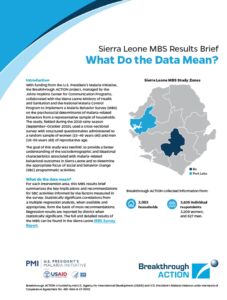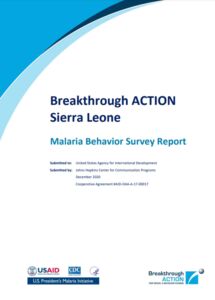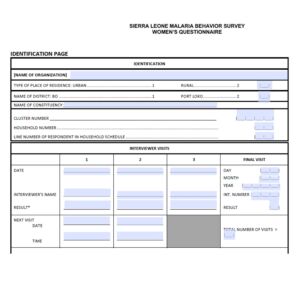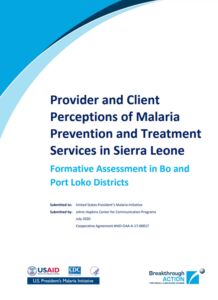Country Results
The Sierra Leone Malaria Behavior Survey was fielded between September and October 2019 by the Breakthrough ACTION project in collaboration with the National Malaria Control Program, the U.S. President’s Malaria Initiative (PMI), and several other local organizations. Survey results were analyzed in coordination with the National Malaria Control Program and released in 2020. Independent of the MBS, complementary qualitative research was conducted in the same year and districts to explore perceptions, knowledge, and behaviors for malaria prevention, diagnosis, and case management among facility-based health workers and patients. From this experience, Breakthrough ACTION developed guidelines for how, when, and why to conduct qualitative research to complement the Malaria Behavior Survey results.
Study Zones




